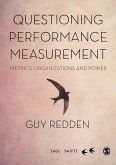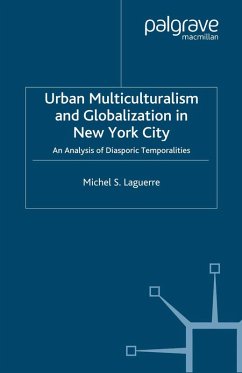"A marvelous addition to the literature on both organizations and power. It is well-grounded in the research on these topics and especially the wide-range of relevant theorizing... The book is terrific at bringing together theory, research and the world of organizations." - George Ritzer, Distinguished University Professor, University of Maryland
"This book tirelessly illuminates the nooks and crannies of the power literature...taking readers on an audacious tour of power's multiple conceptualizations and expressions." - Hugh Willmott, Diageo Professor of Management Studies, University of Cambridge
"Clegg and his associates expose the power dynamics that lie at the heart of all political and organizational arenas, and in so doing, they shed light on the underbelly along with the creative potentialities in organizational life." -Joyce Rothschild, Professor of Sociology, Virginia Polytechnic Institute and State University
"Strange but true - most studies of organizational hierarchies downplay the issue of power or uncritically assume more is better, while ignoring its pernicious effects. Stewart Clegg, David Courpasson and Nelson Phillips set the record straight." - Joanne Martin, Merrill Professor of Organizational Behavior and, by courtesy, Sociology Stanford University Graduate School of Business, Stanford
In this tour de force, Stewart Clegg, David Courpasson and Nelson Phillips provide a comprehensive account of power and organizations, unlocking power as the central relation of modern organizations and society. The authors present an excellent synthesis of organization, social and political theory to offer an overview of power and organizations that is historically informed, addresses current issues and is comprehensive in scope.
Power and Organizations reviews the evolution of theories on power and organization, presenting not only the theorists who identify power as positive, but also dealing with the negativity of power and the real horror of which organizations are capable, which has thus far been underplayed in organization theory. At the core of organizational power projects are organizational elites, whose politics and projects are examined extensively in the book. The book concludes by examining the implications for organizations and their elites of the trends, tendencies, and theories considered in the course of the book.
This book is required reading for graduate students and researchers in areas such as organizational, social and political theory.
"This book tirelessly illuminates the nooks and crannies of the power literature...taking readers on an audacious tour of power's multiple conceptualizations and expressions." - Hugh Willmott, Diageo Professor of Management Studies, University of Cambridge
"Clegg and his associates expose the power dynamics that lie at the heart of all political and organizational arenas, and in so doing, they shed light on the underbelly along with the creative potentialities in organizational life." -Joyce Rothschild, Professor of Sociology, Virginia Polytechnic Institute and State University
"Strange but true - most studies of organizational hierarchies downplay the issue of power or uncritically assume more is better, while ignoring its pernicious effects. Stewart Clegg, David Courpasson and Nelson Phillips set the record straight." - Joanne Martin, Merrill Professor of Organizational Behavior and, by courtesy, Sociology Stanford University Graduate School of Business, Stanford
In this tour de force, Stewart Clegg, David Courpasson and Nelson Phillips provide a comprehensive account of power and organizations, unlocking power as the central relation of modern organizations and society. The authors present an excellent synthesis of organization, social and political theory to offer an overview of power and organizations that is historically informed, addresses current issues and is comprehensive in scope.
Power and Organizations reviews the evolution of theories on power and organization, presenting not only the theorists who identify power as positive, but also dealing with the negativity of power and the real horror of which organizations are capable, which has thus far been underplayed in organization theory. At the core of organizational power projects are organizational elites, whose politics and projects are examined extensively in the book. The book concludes by examining the implications for organizations and their elites of the trends, tendencies, and theories considered in the course of the book.
This book is required reading for graduate students and researchers in areas such as organizational, social and political theory.
Dieser Download kann aus rechtlichen Gründen nur mit Rechnungsadresse in A, D ausgeliefert werden.









